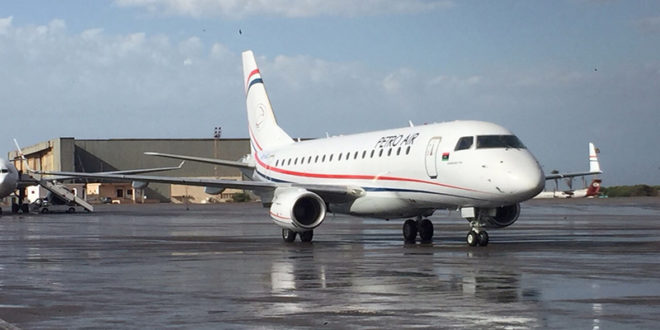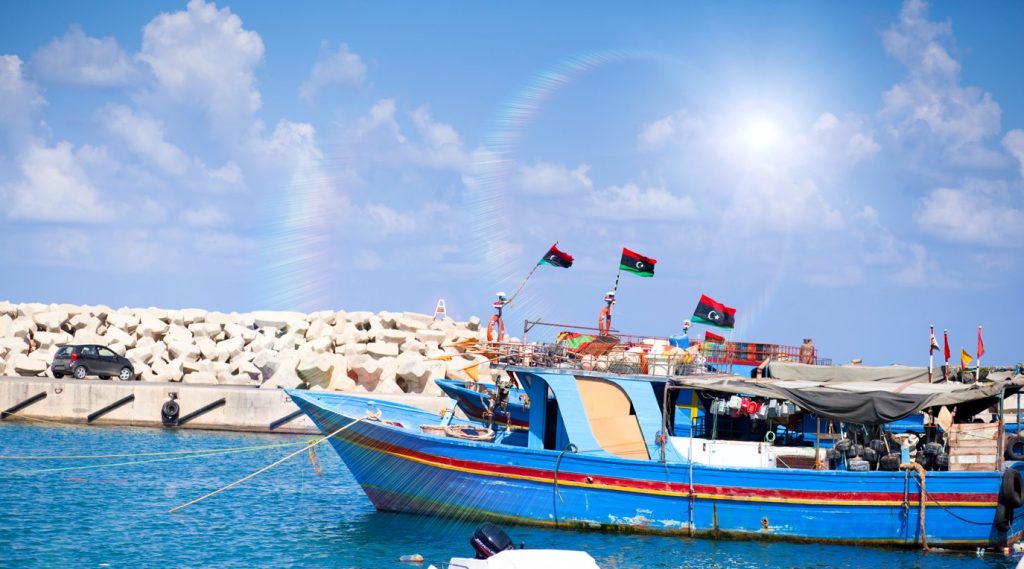Petro Air Company stands as a significant entity in Libya’s aviation sector. Known for its comprehensive air transport services, it has carved a niche by catering to the needs of the oil and gas industry. This company plays a crucial role in connecting remote oil fields with major cities, ensuring efficient and timely transportation.
Founded with a vision to support the energy sector, Petro Air has consistently expanded its fleet and service offerings. Its commitment to safety and reliability has made it a trusted partner for numerous energy companies operating in the region. As Libya continues to develop its infrastructure, Petro Air’s contributions remain pivotal in facilitating the country’s economic growth.
In this article, we’ll explore the company’s history, its range of services, and the impact it has on the aviation and energy industries in Libya. Discover how Petro Air Company has become an integral part of the region’s progress and development.
Table of Contents

Background Of Petro Air Company
Establishment and Headquarters
Petro Air Company was established in 1992, aiming to provide specialised aviation services to the energy sector in Libya. Its headquarters is strategically located in Tripoli, enabling it to effectively coordinate with major oil companies in the region.
Primary Focus
The company focuses on facilitating air transportation specifically for the oil and gas industry, ensuring that remote oil fields remain accessible and operations continue smoothly.
Core Services and Offerings
Petro Air offers a variety of services, including passenger flights, cargo transport, medical evacuations, and aircraft maintenance. These services are crucial in Libya due to the vast deserts and the need for reliable transportation to remote areas lacking in infrastructure.
Market Presence
As a dominant player in the aviation sector, Petro Air has established a strong market presence. With partnerships with major oil firms, it continues to expand its fleet and capability. A notable milestone includes the company’s consistent safety record, which has bolstered its reputation in the energy industry.
Structure and Key Features
The organisational structure of Petro Air fosters resilience and agility, featuring specialised departments for operations, maintenance, and safety. Key branches and operational bases are spread across major Libyan cities and strategic oil field locations, ensuring comprehensive service coverage.
Relevance in Libya
Petro Air significantly contributes to the national economy by supporting the critical oil and gas sectors, pivotal to Libya’s GDP. By aligning its operations with Libya’s development goals, Petro Air supports infrastructure growth and economic diversification, highlighting its indispensable role in transformation and progress.

Fleet And Services
Petro Air Company boasts a diverse fleet designed to meet the needs of the oil and gas industry. The company offers a variety of services fundamental to operations in Libya’s challenging terrain.
Types Of Aircraft
Petro Air operates a fleet consisting of fixed-wing aircraft and helicopters. This includes models like the Bombardier Dash 8, tailored for passenger transport, and the AgustaWestland AW139 helicopters ideal for quick and versatile missions. The fleet’s configuration ensures efficient service delivery, even in remote locations. Regular maintenance and upgrades keep the aircraft in optimal condition, contributing to the company’s strong safety record.
Services Offered
Petro Air provides a spectrum of services crucial to the energy sector. Their offerings include passenger transportation, which connects key urban centres with remote oil fields. They offer cargo transport services for equipment and supplies, ensuring timely deliveries. Medical evacuation services are available, enhancing safety for personnel in the field. The company also provides aircraft maintenance services, guaranteeing operational readiness and safety. These services are vital in a country where the oil and gas industry significantly contributes to the national GDP.
Customer Experience
Petro Air Company focuses on creating a positive customer experience in its air transport services for the oil and gas industry.
Feedback And Reviews
Customers often praise Petro Air for its commitment to safety and reliability. Positive reviews frequently mention the knowledgeable flight crews and the smooth, punctual service as standout features. Passengers express satisfaction with the comfortable seating arrangements and commend the company for maintaining high standards of aircraft maintenance. Feedback suggests that the customer service team is responsive, ensuring all queries and concerns are addressed promptly. Surveys indicate a high level of trust in Petro Air’s ability to handle complex logistics for both passenger and cargo transport.
Overall Satisfaction
Overall satisfaction rates for Petro Air remain consistently high, with clients from major energy firms lauding the efficient coordination between Petro Air and their ground operations. Customers appreciate Petro Air’s adaptability to the unique demands of the oil and gas sectors, citing its comprehensive service offerings like medical evacuations and essential equipment transport. The company’s focus on safety protocols and its ability to operate in challenging environments significantly contribute to this satisfaction. Repeat contracts from established clients highlight the company’s reputation as a reliable partner in the Libyan aviation market.

Safety And Compliance
Petro Air prioritises safety and compliance, adhering to rigorous aviation standards. Its safety protocols align with international guidelines, ensuring operational excellence in line with industry best practices.
Safety Protocols
Petro Air implements stringent safety procedures for every flight. These include pre-flight checks, regular crew training, and detailed maintenance schedules. With a safety-first approach, they have maintained a consistent safety record over decades, earning trust across the energy sector.
Regulatory Adherence
Full compliance with Libyan and international aviation regulations is a core principle at Petro Air. They undergo regular audits and inspections, ensuring that all operations meet the requisite statutory requirements. This commitment enhances their credibility among partners and clients.
Staff Training
Continuous professional development is emphasised at Petro Air. Employees regularly participate in training programmes, covering areas like emergency procedures, technical updates, and customer service. This focus on high skill levels reinforces their operational reliability.
Fleet Maintenance
Meticulous maintenance routines are vital to Petro Air’s safety strategy. Their team of skilled engineers performs regular inspections and upgrades, ensuring aircraft remain in top condition. Preventative measures in maintenance further reduce risks, supporting their safety objectives.
By integrating these safety and compliance strategies, Petro Air solidifies its reputation as a leading, reliable entity in Libya’s aviation sector.
Market Position And Competitors
Petro Air Company holds a prominent position in Libya’s aviation market, focusing primarily on the oil and gas sector. They have structured strategic partnerships with major energy firms, amplifying their reach and reinforcing their standing as a trusted transport provider. This alliance has intensified their market presence across the Libyan landscape, allowing them to effectively connect remote oil fields to crucial urban centres.
In terms of competitors, Petro Air faces challenges from national and regional aviation companies that also cater to the specialised needs of the industry. However, their consistent safety record and tailored service offerings provide a competitive edge. By maintaining high operational standards, Petro Air distinguishes itself among these competitors. Additionally, continuous investment in fleet upgrades and workforce training ensures they stay ahead in a market rife with changing technological and regulatory requirements.
Notable achievements include expanding their fleet with advanced aircraft, a move as indicative of their commitment to modernisation and efficiency. These developments not only elevate their service quality but also strengthen their competitive advantage in Libya’s aviation sector.

Future Prospects
Petro Air’s future centres on expanding its services and integrating modern technology to enhance operational efficiency. The company plans significant investments in fleet modernisation, focusing on fuel-efficient and environmentally friendly aircraft. Introduction of advanced aircraft like the Boeing 737 MAX or the Airbus A220 exemplifies this commitment.
In the area of digital transformation, the company is set to implement AI-driven maintenance solutions to optimise aircraft performance and reduce downtime. This move aligns with global aviation trends towards increased automation and predictive analytics in maintenance.
Strategic partnerships with international firms are on the horizon to facilitate knowledge transfer and enhance service delivery. By collaborating with global aviation leaders, Petro Air aims to boost its technical capabilities and offer innovative solutions.
Petro Air’s expansion strategy includes exploring new routes to neighbouring regions, which presents opportunities to broaden market presence and capture emerging markets. Developing new routes to key hubs in Africa, Europe, and the Middle East is part of this ambition.
Driving sustainability initiatives forms a core part of Petro Air’s future agenda. The company plans to adopt sustainable aviation fuel and integrate eco-friendly practices across operations. Commitment to reducing carbon emissions aligns with international environmental standards.
Investment in workforce development ensures Petro Air’s staff remain adept at handling evolving industry challenges. Continuous training and development programmes will equip employees with necessary skills to maintain service excellence as the sector advances.
Petro Air’s strategic vision underpins its ambition to remain a pivotal player in Libya’s aviation sector while adapting to the industry’s dynamic landscape.
Conclusion
Petro Air Company stands as a cornerstone in Libya’s aviation sector, particularly for the oil and gas industry. Its unwavering commitment to safety, reliability, and customer satisfaction sets it apart as a trusted partner for major energy firms. The company’s strategic initiatives, including fleet modernisation and sustainability efforts, position it well for future growth. As Petro Air continues to expand its services and embrace technological advancements, it remains poised to maintain its pivotal role in Libya’s aviation landscape while exploring new opportunities in regional markets.



